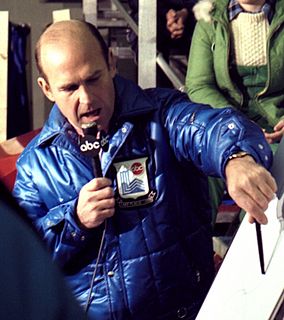A Quote by Margaret Oliphant
Somehow even a popular fallacy has an aspect of truth when it suits one's own case.
Related Quotes
It's a critical fallacy of our times ... that a writer should 'grow,' 'change,' or 'develop.' This fallacy causes us to expect from children or radishes: 'grow,' or there's something wrong with you. But writers are not radishes. If you look at what most writers actually do, it resembles a theme with variations more than it does the popular notion of growth.
For the artist, the goal of the painting or musical composition is not to convey literal truth, but an aspect of a universal truth that if successful, will continue to move and to touch people even as contexts, societies and cultures change. For the scientist, the goal of a theory is to convey "truth for now"--to replace an old truth, while accepting that someday this theory, too, will be replaced by a new "truth," because that is the way science advances.
I do not recall another period when ‘faith’ was as popular as it is today. ‘If only we believe hard enough we'll make it somehow.’ So goes the popular chant. What you believe is not important. Only believe... What is overlooked in all this is that faith is good only when it engages truth; when it is made to rest upon falsehood it can and often does lead to eternal tragedy. For it is not enough that we believe; we must believe the right thing about the right One.
Scientists rightly resist invoking the supernatural in scientific explanations for fear of committing a god-of-the-gaps fallacy (the fallacy of using God as a stop-gap for ignorance). Yet without some restriction on the use of chance, scientists are in danger of committing a logically equivalent fallacy-one we may call the “chance-of-the-gaps fallacy.” Chance, like God, can become a stop-gap for ignorance.






































